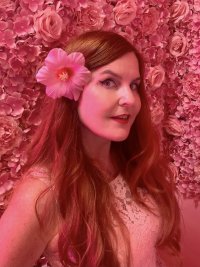Cassandra Atherton

Cassandra Atherton is a poet and scholar. She is Professor of Writing and Literature at Deakin University. She was a Harvard Visiting Fellow in English and a Visiting Scholar in Comparative Culture at Sophia University, Tokyo. She is writing a book of prose poetry on the atomic bomb with funding from an Australia Council grant.
In an exquisite, braided narrative, Catherine McKinnon’s To Sing of War reanimates World War II in a paean to the environment. Set between December 1944 and August 1945, the narrators experience the ways ‘Violence is malleable, it is everywhere’, but find healing and resilience in ‘the heart of the earth’. Importantly, Virgil’s epic poem, The Aeneid, is the key intertext and provides t ... (read more)
A feminist triumph and homage to Virginia Woolf, Miranda Darling’s Thunderhead is a potent exploration of suburban entrapment for women. The novella opens with a complex satire of Ian McEwan’s response to Woolf’s Mrs Dalloway (1925) in his novel Saturday (2005). All three books are set over the course of a single day, where the intricacies of both the quotidian and extraordinary occur. In th ... (read more)
Jill Jones has given many interviews about her poetry where, inevitably, an interviewer asks her, ‘What is Australian poetry?’ In one of my favourite quips, Jones says, ‘Is it only Australians who worry about what is “Australian” poetry?’ Related issues are addressed in her pithy foreword to her second volume of new and selected poems, Acrobat Music. She states, ‘I realise, and other ... (read more)
Spellbinding, genre-defying, and powerful in its vision of the future, Kate Mildenhall’s third novel, The Hummingbird Effect, interweaves four matrilineal narratives that span the years 1933 to 2181. Set in Footscray and its surrounds, including the Meatworks, Sanctuary Gardens Aged Care, and a futuristic Forest/Inlet/Island, the novel explores the central concern of ‘unmaking the world’ in ... (read more)
In Novelist as a Vocation, Haruki Murakami describes himself as a ‘very ordinary person’ who has ‘a bit of ability’ in writing novels. It is a point Murakami labours in the eleven essays loosely focused on the craft of writing in this book, where he variously insists that ‘I was just a regular guy who in his spare time tossed off a novel that happened to go on to win a new writer’s pri ... (read more)
The Burnished Sun by Mirandi Riwoe, Danged Black Thing by Eugen Bacon, and Sadvertising by Ennis Ćehić are powerful, inventive, and self-assured short story collections that traverse fractured and contested ground through their often displaced and alienated narrators.
The Burnished Sun by Mirandi Riwoe UQP, $29.99 pb, 288 pp
Mirandi Riwoe’s The Burnished Sun is an unforgettab ... (read more)
‘Shall I scrub your back for you?” the monkey asked ... He had the clear, alluring voice of a doo-wop baritone. Not at all what you would expect.’ The eight short stories in First Person Singular are exactly what a reader has come to expect from Haruki Murakami, a writer with a penchant for neo-surrealism. The parabolic tales in this collection explore the familiar tropes and motifs of his o ... (read more)
A series of beautifully controlled fictional voices and an exquisite sense of literary craft contribute to the dark magnificence of Chloe Wilson’s début collection of short stories, Hold Your Fire. This volume explores the strange and sometimes surprising abject horror that characterises the quotidian and the ordinary. The stories both examine and revel in the classically Kristevan abject reali ... (read more)
In his description of the verse novel as ‘the awkward child of successful parents, destined to disappoint both of them’, Michael Symmons Roberts emphasises the form’s sometimes disjunctive use of literary techniques commonly associated with poetry and prose fiction. While the verse novel has gained popularity since the 1980s, many of its features may be traced to epic poems such The Epic of ... (read more)
